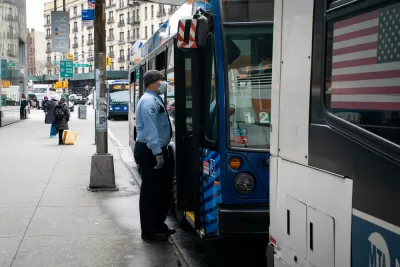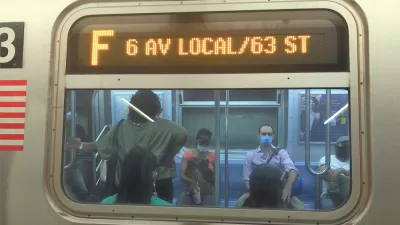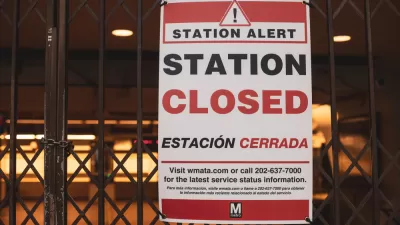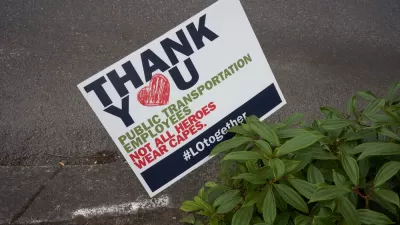There wasn't a playbook for this kind of emergency at the beginning of the year.

Transit agencies are cutting service all over the country in response to plummeting ridership and revenues as transit users stay home or choose other modes of transportation to slow the spread of the coronavirus. Jarrett Walker, who wrote a definitive article recently for CityLab on the essential service provided by transit during the pandemic, as well before the pandemic, has now written another article to provide transit agencies with guidance about why, and how, to cut service in response to the new reality.
Chapters of the article, each not as lengthy as Walker makes it seem at the beginning, read as follows:
Drilling down a bit here on that essential third chapter, Walker categorizes the types of cuts that can be made in two ways: 1) easy options, like tourism serving routes and rush hour service, and 2) difficult options, like cutting frequencies, service areas, and service hours.
Like many people lending their expertise for guidance through a confusing and uncertain time, Walker notes that from crisis comes opportunity. "And because this is a big and enduring crisis, the opportunity is big and enduring too."
FULL STORY: Cutting Transit Service During the Pandemic: Why? How? And What’s Next?

Alabama: Trump Terminates Settlements for Black Communities Harmed By Raw Sewage
Trump deemed the landmark civil rights agreement “illegal DEI and environmental justice policy.”

Planetizen Federal Action Tracker
A weekly monitor of how Trump’s orders and actions are impacting planners and planning in America.

The 120 Year Old Tiny Home Villages That Sheltered San Francisco’s Earthquake Refugees
More than a century ago, San Francisco mobilized to house thousands of residents displaced by the 1906 earthquake. Could their strategy offer a model for the present?

In Both Crashes and Crime, Public Transportation is Far Safer than Driving
Contrary to popular assumptions, public transportation has far lower crash and crime rates than automobile travel. For safer communities, improve and encourage transit travel.

Report: Zoning Reforms Should Complement Nashville’s Ambitious Transit Plan
Without reform, restrictive zoning codes will limit the impact of the city’s planned transit expansion and could exclude some of the residents who depend on transit the most.

Judge Orders Release of Frozen IRA, IIJA Funding
The decision is a victory for environmental groups who charged that freezing funds for critical infrastructure and disaster response programs caused “real and irreparable harm” to communities.
Urban Design for Planners 1: Software Tools
This six-course series explores essential urban design concepts using open source software and equips planners with the tools they need to participate fully in the urban design process.
Planning for Universal Design
Learn the tools for implementing Universal Design in planning regulations.
Clanton & Associates, Inc.
Jessamine County Fiscal Court
Institute for Housing and Urban Development Studies (IHS)
City of Grandview
Harvard GSD Executive Education
Toledo-Lucas County Plan Commissions
Salt Lake City
NYU Wagner Graduate School of Public Service





























